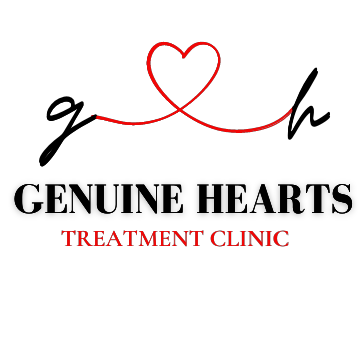Mental Health Through the Lens of Critical Race Theory
Your mental health doesn’t exist in a vacuum it exists in a world shaped by race, power, and history.
At Genuine Hearts, we believe healing must be rooted in truth. That’s why we use frameworks like Critical Race Theory (CRT) to help our clients understand how systemic racism affects not only their opportunities but also their mental health.
Let’s talk about what CRT is, how it relates to therapy, and how the emotional weight of racism shows up in everyday life.
📚 What Is Critical Race Theory?
Critical Race Theory is a framework that examines how racism is embedded in laws, systems, and institutions not just individual beliefs.
CRT helps us see that racism is not an anomaly or a series of isolated incidents it’s a patterned, historic, and structural issue that shapes:
Education
Employment
Housing
Healthcare
Criminal justice
Mental health access and stigma
And for those of us who live these realities daily, CRT isn’t theoretical: it’s lived.
💥 So What Does This Have to Do with Mental Health?
Everything.
When you grow up or live in systems that invalidate your identity, restrict your access, or punish your existence it impacts your sense of safety, your stress levels, your confidence, and even your nervous system.
Let’s look at how CRT helps us understand the psychological impact of racism in different institutions.
🔍 How Racism Shows Up — And Hurts — Across Systems
🎓 1. Education
Black and Brown students are disciplined more harshly for the same behaviors as white students.
Curriculums often erase or sanitize history, invalidating cultural identity.
Students are told they’re “too loud,” “too aggressive,” or “unmotivated” when they express themselves authentically.
Emotional impact:
Chronic feelings of invisibility, shame, and anxiety. Internalized beliefs about “not being good enough” or needing to shrink.
💼 2. Employment
Discrimination in hiring, pay gaps, and promotion opportunities.
Emotional labor of code-switching and “professionalism” rooted in whiteness.
Being the “only one” in a workspace facing microaggressions, isolation, or tokenization.
Emotional impact:
Burnout, imposter syndrome, hypervigilance, and emotional exhaustion from constantly monitoring how you show up.
🏥 3. Healthcare & Mental Health Access
Black patients are less likely to be believed or treated for pain.
Mental health struggles are often minimized or pathologized through a white lens.
Lack of culturally competent therapists creates a barrier to healing.
Emotional impact:
Distrust of providers, reluctance to seek help, and ongoing mental distress that goes unsupported or misunderstood.
🏛 4. The Criminal Legal System
Over-policing of Black and Brown communities.
Harsher sentencing and higher incarceration rates for nonviolent offenses.
Schools funneling children into the juvenile justice system instead of offering support.
Emotional impact:
Trauma from family separation, constant surveillance, and fear. Grief from watching loved ones cycle through unjust systems.
🏘 5. Neighborhoods & Housing
Redlining and displacement uproot communities and limit generational wealth.
Underserved neighborhoods lack access to mental health resources, green space, and safety.
Environmental racism increases health problems and chronic stress.
Emotional impact:
A constant sense of instability. Struggles with identity and safety. Feeling like your life is being devalued by design.
💡 Why CRT Belongs in Therapy
Therapy without context becomes blame.
You are not "too sensitive" for being angry or exhausted by racism. You're not overreacting when you feel unseen in white-dominated spaces. You're responding to something very real.
Culturally affirming therapy grounded in CRT:
Validates your experience of systemic harm
Helps you name the source of trauma not internalize it
Encourages collective healing, not just individual coping
Supports you in navigating racial stress, burnout, and injustice without shame
🧡 The Power of Naming It
When we name the systems that harm us, we stop blaming ourselves for the pain they cause. That’s part of healing.
Whether you're navigating racial battle fatigue, intergenerational trauma, or just trying to breathe in a world that feels heavy your story deserves context, compassion, and care.
You are not broken. You are responding to a broken system.
📬 Let’s Heal Together
At Genuine Hearts, we offer therapy that honors your identity and acknowledges the world you move through every day. If you're ready for healing that centers your experience, contact us here. We see you.
Genuine Hearts Wellness Blog
Healing begins with truth.

